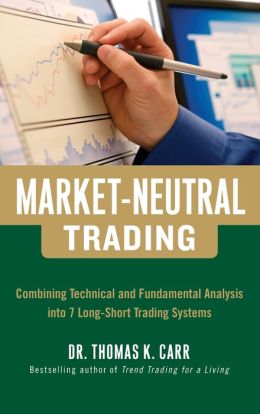A Trader’s 10 Best Friends
- Studying the markets to understand what works. $Study
- You are comfortable with uncertainty. ????
- Being optimistic about winning in the long term. #Winning
- You manage risk very carefully on each trade. #RiskofRuin
- Thinking in probabilities and asymmetrical trades. #RiskReward
- Following your trading plan. #Discipline
- Accepting losses. #StopLoss
- Letting winners run. #TrendFollowing
- A plan on exactly how you will trade. #TradingPlan
- A robust trading system. #EDGE
A Trader’s 10 Worst Enemies
- Scared to enter a trade.#Fear
- Feeling the need to be right on every trade. #Pride
- Entering a trade too late or taking profits too soon. #Impatience (more…)


 Thomas Carr is the CEO of an advisory and trader training service, designer of a MetaStock add-on toolkit, and partner in an investment firm. Known online as Dr. Stoxx, he is the author of Trend Trading for a Living and Micro-Trend Trading for Daily Income. His latest work is Market-Neutral Trading: Combining Technical and Fundamental Analysis into 7 Long-Short Trading Systems (McGraw-Hill, 2014).
Thomas Carr is the CEO of an advisory and trader training service, designer of a MetaStock add-on toolkit, and partner in an investment firm. Known online as Dr. Stoxx, he is the author of Trend Trading for a Living and Micro-Trend Trading for Daily Income. His latest work is Market-Neutral Trading: Combining Technical and Fundamental Analysis into 7 Long-Short Trading Systems (McGraw-Hill, 2014).